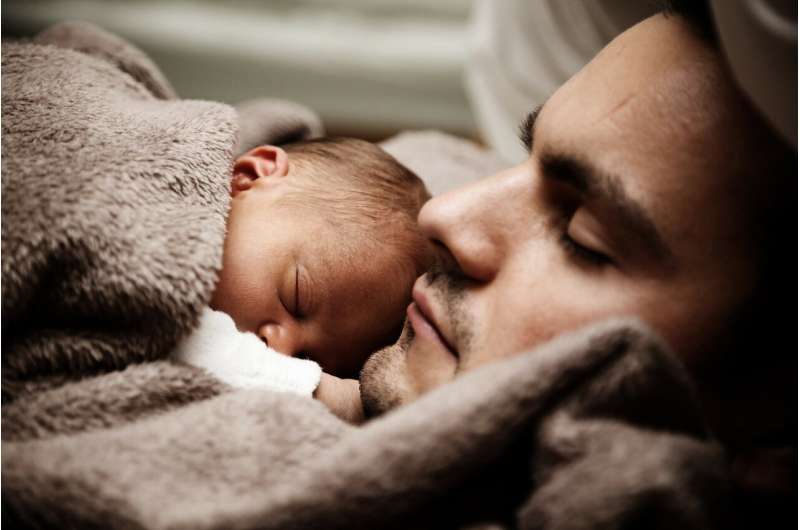Exposure to influential bacteria begins before we are born, new evidence confirms

Australian researchers have laid to rest a longstanding controversy: is the womb sterile?
They carefully collected amniotic fluid samples from 50 healthy women undergoing planned caesarean deliveries, and found that nearly all (36/43 viable samples) contained bacterial DNA. What's more, all 50 newborns had bacteria in their first poop.
Published in Frontiers in Microbiology, the study used uniquely rigorous contamination controls to confirm that exposure to bacteria begins in the womb—and could help to shape the developing fetal immune system, gut and brain.
The not-so-sterile womb
"Over the last decade, numerous studies have detected bacterial DNA in amniotic fluid and first-pass meconium [baby's first poop], challenging the long-held assumption that the womb is sterile," explains lead author Lisa Stinson, of the University of Western Australia. "However, some argue that the results are false positives—contaminants in the reagents used in DNA analysis."
It is important to conclusively determine whether the healthy womb harbors bacteria, say the researchers, because this 'fetal microbiome' would likely have a significant impact on the developing immune system, gut, and brain.
The fetal microbiome
To settle the issue, Stinson and colleagues took strict measures to eliminate bacterial contamination when analyzing amniotic fluid and meconium samples. For example, they purified the reagents used to amplify traces of bacterial DNA in the samples, by adding an enzyme which digests DNA remnants from biomanufacturing.
"Despite these measures, we still found bacterial DNA in almost all samples," reports Stinson.
"Interestingly, the meconium microbiome varied hugely between individual newborns. The amniotic fluid microbiome for the most part contained typical skin bacteria, such as Propionibacterium acnes and Staphylococcus species."
A developmental role
But what might these bacteria be doing in the womb?
None of these women or their babies had any sign of infection. In fact, the fetal microbiome may prove to be a beneficial regulator of early development.
"We found that levels of important immune modulators in meconium and inflammatory mediators in amniotic fluid varied according to the amount and species of bacterial DNA present. This suggests that the fetal microbiome has the potential to influence the developing fetal immune system."
There is one small caveat—technically, the DNA in these samples could have come from bacteria that were already dead in the womb.
"Here we've proven that bacterial DNA is present in the womb, but the next step will be to show whether these are alive and constitute a true microbiome," concludes Stinson.
More information: Lisa F. Stinson et al. The Not-so-Sterile Womb: Evidence That the Human Fetus Is Exposed to Bacteria Prior to Birth, Frontiers in Microbiology (2019). DOI: 10.3389/fmicb.2019.01124




















